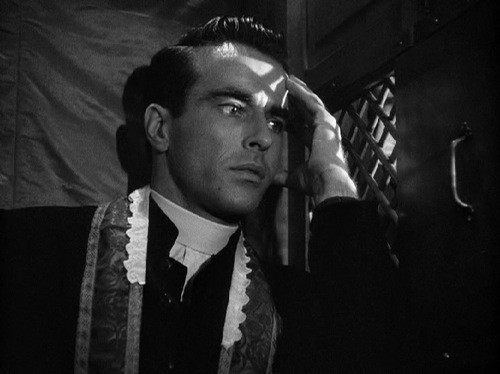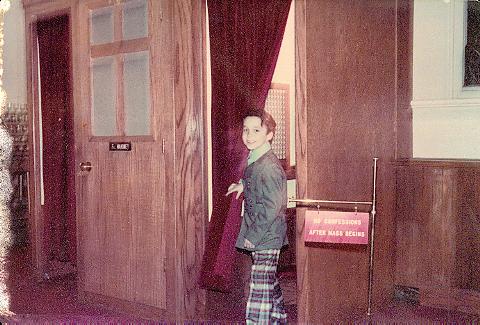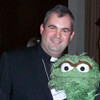Everyone named Jim Keane is a bumbling ne’er-do-well.
You may have examples to the contrary, but I have known them all already, known them all: the Jim Keane in Finland who stole his brother’s plumbing tools; the homonymous wanker in Liverpool who never paid his mother back for the pounds she laid out for his soccer tickets; the salesman traveling internationally who made his driver sleep under his bed because he didn’t want to pay for a second hotel room; the backpacker in Europe who’s sleeping his way across the continent; the hipster in San Francisco who asked his sister to cover his security deposit and now wants her to collect payment from their parents; the Jim Keane in Ireland who responds to every entreaty that he reconcile with his family with the line “don’t put a candle on a turd and call it a birthday cake, because I just won’t eat it”; and, alas, many many more.
I don’t know any of these people personally, mind you, other than the fellow my editor deleted (“the erudite seminarian who suffers under a soi-disant ‘editor’ who is an absolute philistine”), but I have read plenty about them. When I think of all of us as a composite, I imagine Jim Keane to be something like the Ronnie Dobbs of Mr. Show fame, somehow at the center of trouble in every corner of the globe, always ready with an excuse, and very rarely up to any good. It’s a source of a great deal of name shame, and I’m hardly off the hook myself; there is a Jim Keene in my own province who has suffered mightily over the years reading emails from other Jesuit scholastics meant for me, some of which surely made him want to wash his eyes out with bleach. Just one more missive to one more Jim Keane, explaining that, well, mistakes were made!1
And just how, exactly, do I have access to the grimy details of the lives of my fellow Jims, you ask? The long and short of it is that I got in early on this whole “Internet” thing. Among the trades I plied before I found my vocation to the Jesuits was as an .html programmer for a dotcom, back in those halcyon days of the 1990s. It was a great job – I made good money for showing up to work in shorts and writing code all day, and the only negative was that I periodically had to post updates to Ed Kowalczyk’s online diary (You don’t remember Ed Kowalczyk? Bully for you. He was the lead singer of a band called “Live” that I loathed utterly, and you don’t even want to think about what it was like to edit his online diary. He probably knows my editor). It was also the era when free web-based email became available for the first time, and I was more or less at the front of the line since I spent my entire working day on the Internet, and so I got a variation on my name that was simple and direct. I still use that email address, though nowadays it serves mostly as a backup for an address much more recherché.
So let’s say you’re angry with the Jim Keane in your life (it happens). You shoot off an impassioned email but don’t necessarily check to see if you got his address perfectly right, or maybe you don’t know his exact email address, or maybe he LIED TO YOU and gave you a fake email address to buy himself some time. In more cases than you’d think, you’ve sent that furious email to me by mistake, and over the past fifteen years I’ve seen some real doozies.
The sad truth is that I never know how to respond. “Wrong Jim, sorry for your troubles”? “Consider the beam in thine own eye”? “You and me both, sister”? And ignoring them is not an option – Jim Keanes all over the world use this as an avoidance strategy, so usually the sender is hip to that game. I used to let them know they had the wrong guy, until one interlocutor (with, awkwardly, the same name as my sister) told me off for reading her private correspondence. What was I supposed to do? It was sent to me with a subject heading that read, “wait until you hear what Dad said this time.” Curiosity kills this cat!
In any case, one would think that it would be impossibly annoying to be mistaken repeatedly for someone else with the same name, particularly when it seems the only decent fellows who share your name are a few firemen and cops (come to think of it, the one Jim Keane who had been seen exiting a subway car in Brooklyn when he was supposed to be visiting his mother in Brookline actually WAS a fireman). And I’m hardly going to pretend that I haven’t been horrified and dismayed at some of the shenanigans we Jim Keanes manage to pull off, or some of our excuses for how those shenanigans came to pass. Over time, however, something curious has happened with these emails (they still come; I got one just a few weeks ago); I began to find them endearing. Most of these fellows, after all, weren’t necessarily all bad. They just seemed to make the wrong choices at the wrong times, and had an alarming (and sometimes hilarious) propensity for saying the wrong thing when trying to explain themselves. Their foibles were rarely on the level of anything really evil or dastardly – they ran into trouble with money, with sex, with family dynamics, with taking responsibility for their own actions. But are those such unfamiliar stories to the rest of us?
Another point: If you look closely enough at any human drama, you discover that no situation is as black and white as the text it’s presented on. A lot of my fellow Jim Keanes are on the run from something, but some of them are on the run from someone—and with good reason. For example, the aforementioned backpacker with the roving eye? His girlfriend had cheated on him, but was trying to track him down somewhere in Europe. Why? She wanted him to know (even though she had ditched him for some Italian lothario she met on their travels) that, “I am still your booshie and you’re my pookie even if we’re not together anymore.” Booshie? Pookie? Her I really wanted to write back, because I had a few things to say.
The familiarity of such tales of human woe and sin and confusion get to the heart of a human reality that isn’t always easy to put into words, but which the teacher of one of my courses (this one on the Sacrament of Reconciliation) laid out succinctly. “Sooner or later,” he said, “every single one of us, at one time or another, finds him or herself in a grimy roadhouse on the roadside of life. And none of us are quite sure how we got there.” That same professor said something else during that same course, something that I have heard from almost every priest I’ve ever asked what it’s like to hear confessions. He said that the primary experience of every confessor is not how evil people are, but how good they are. He told the class, without going into revelatory details, how inspiring it can be to see people trying hard to do the right thing. He opened us up to hearing how remorseful people can be for the mistakes they make, how much they desire reconciliation with God and with each other in lives that are complicated, messy, encumbered by sin in ways that they can and can’t control.
Over the course of the semester in that class on Reconciliation, each student acted as a faux confessor or as a penitent on a number of occasions, and we tried out on one another all manner of scenarios that one might encounter in an actual sacramental confession. And, in case you haven’t had the privilege of taking on this particular acting job, let me tell you that when you’re asked to think up a plausible scenario to present to a priest-in-training, you tend to rely on what you know, i.e., what you actually struggle with yourself. Sure enough, after enough experiences of fake confession, I started to get an inkling of what enough time in the box teaches an actual confessor, and I’d say it’s something like this: we’re in this together. Rare indeed is the person whose sinfulness or stupidity is not even more vexing for him or herself than it is for the people whom he or she has hurt.
Of course, the ones who come for sacramental confession tend to be a self-selecting sample. Maybe there are many of us human beings who are truly impenitent and feel no need for forgiveness. Or maybe, just maybe, a lot of us are afraid to ask for it.
In any case, there’s a valuable lesson for all of us when we see the foibles of our peers laid out in such stark detail, a lesson we have all already learned but could still stand some repetition: there is nothing new under the sun, and there’s usually not that much difference between the best of us and the ne’er-do-wells among us. We all need and want reconciliation at some level or another, and most of us know it about ourselves before we know it about someone else. Deep down in our hearts, most of us want to pay for the pilfered plumbing kit, apologize to the slighted friend, and to make right with God and with each other what went wrong in a thousand and one ways in our lives. And, God knows, we’re all a little closer to holiness than we, our namesakes, our peers, or even those who stand in judgment over us might think.
— — — — —
- Full disclosure: Enough of these details are fabricated that none of this is necessarily true of any one person. After all, we Jim Keanes need to stick together in this topsy-turvy world. ↩





